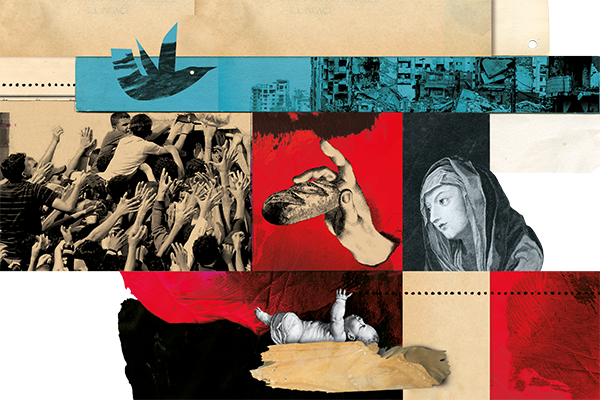FOR THE THIRD year in a row, Advent in Palestine is not a season of joy. Even with the tenuous ceasefire, Advent is lived in the shadow of genocide, walls, checkpoints, ethnic cleansing, dispossession, and fear.
For many Palestinians, these days of waiting and preparation are overshadowed by mourning for loved ones lost, for homes demolished, for lands taken. In Bethlehem itself, where the Christian story began, streets that should be filled with song and light are burdened with grief and lament. The hymns of waiting mingle with the cries of the bereaved, displaced, imprisoned, and the starving.
In the land where the gospel of Jesus first unfolded, the nearness of Advent is most real. The Christmas story doesn’t look like comfort, plenty, and “toys in every store.” The original narrative bears a much closer resemblance to the times in which we, Palestinians, currently live.
Read the Full Article

